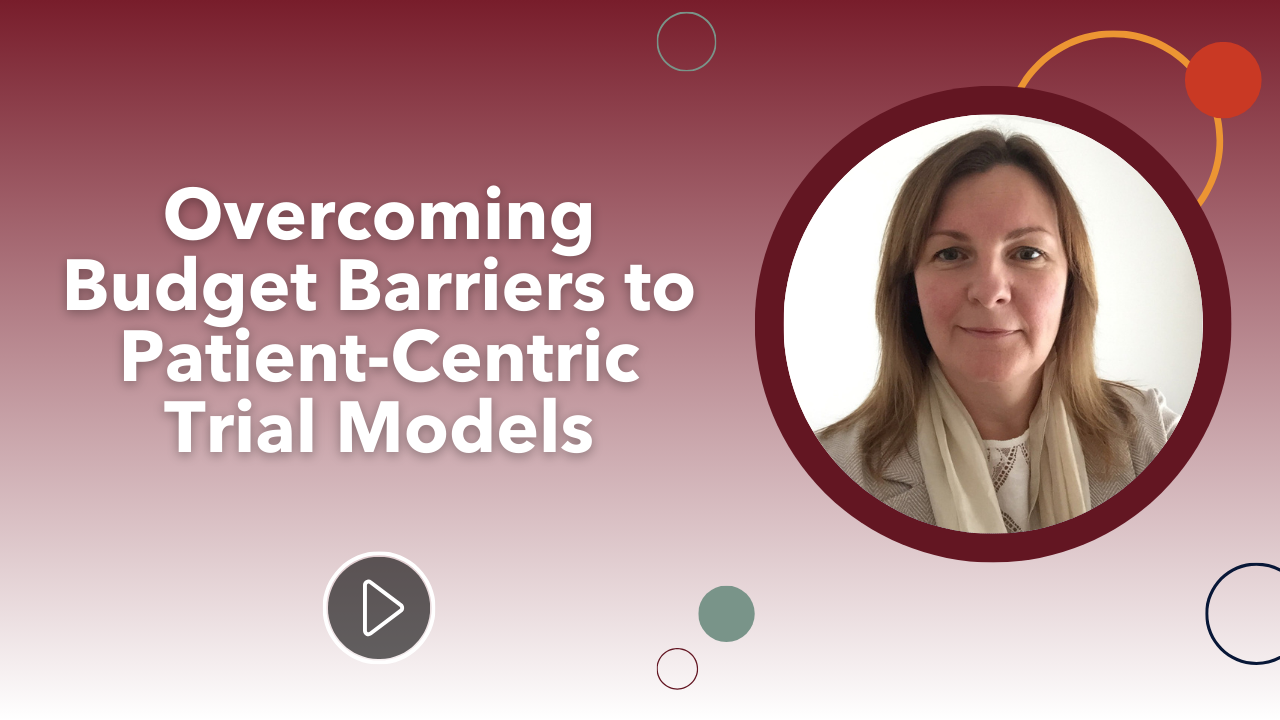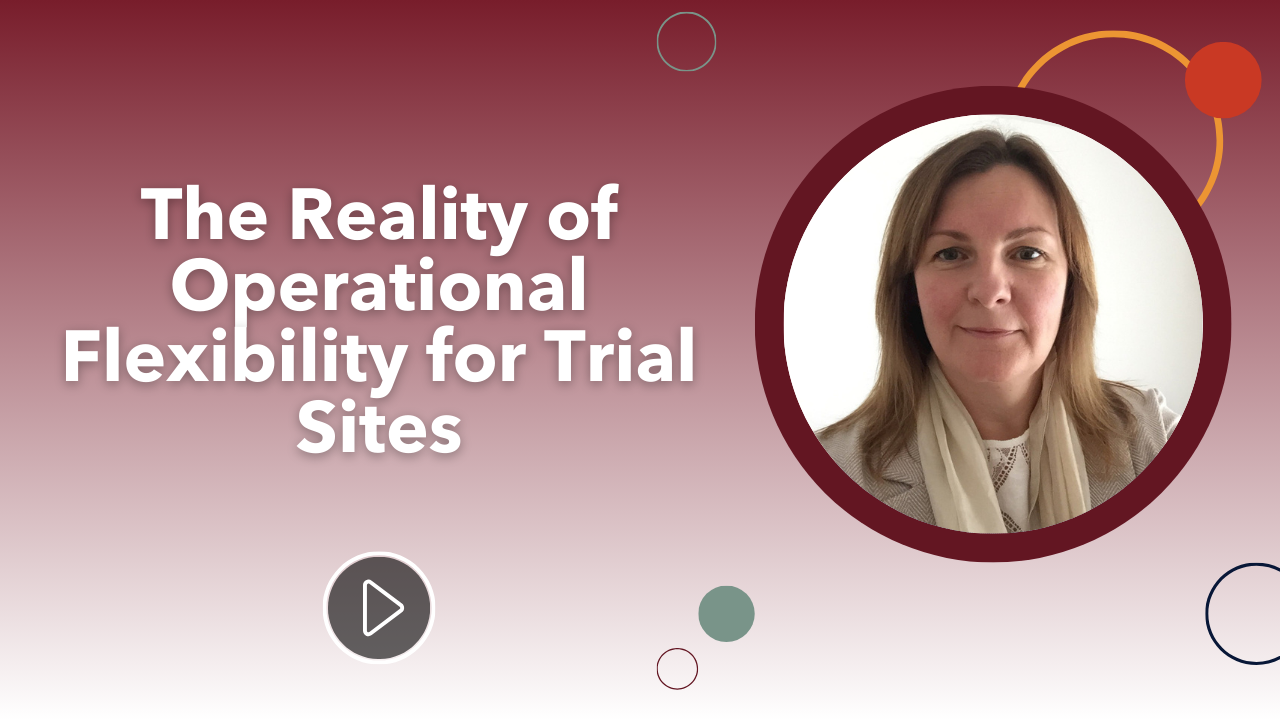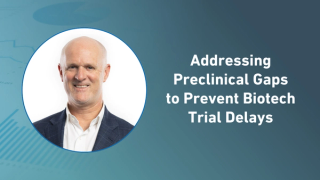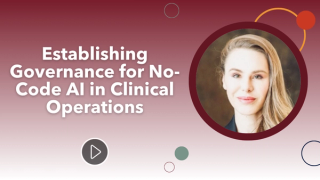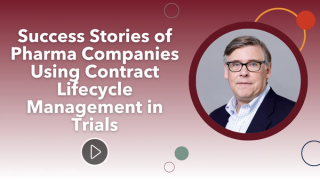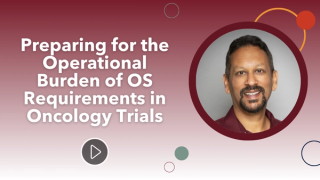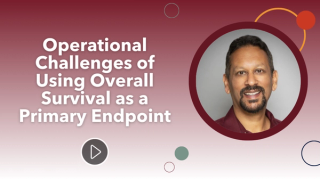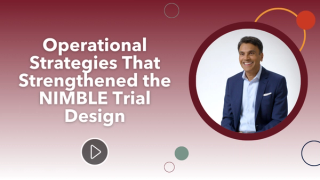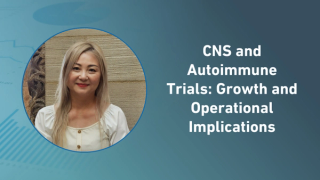
Clinical Operations & Strategy
Latest News
Latest Videos

More News

In this video interview, Meri Beckwith, Co-CEO of Lindus Health, shares practical ways clinical teams can strengthen trial protocols for expedited programs—such as incorporating control groups where possible, leveraging synthetic and real-world data, and adopting adaptive trial designs to reduce regulatory risk.

Ron Lanton, partner, Lanton Law, explains why evolving federal guidance and new technologies are pushing clinical operations teams to strengthen oversight and safeguard the credibility of clinical research.

In this Q&A, Rohit Nambisan, CEO of Lokavant, and Jonathan Crowther, head of predictive analytics, Pfizer, explore how AI is transforming study feasibility, regulatory review, and trial execution.

In this video interview, Meri Beckwith, Co-CEO of Lindus Health, discusses whether recent trial design rejections signal a broader shift in FDA expectations or simply reflect changes in individual reviewers, emphasizing that current unpredictability may be more situational than systemic.

In this video interview, Meri Beckwith, Co-CEO of Lindus Health, explains why sponsors pursuing breakthrough or priority review designations must maintain rigorous trial design while building organizational agility.

In this video interview, Meri Beckwith, Co-CEO of Lindus Health, discusses recent Complete Response Letters issued to Replimune and Capricor, explaining how shifts in FDA reviewers can affect single-arm trial acceptance, especially in oncology settings where control groups may be deemed unethical.

A unified technology approach improves study efficiency and data collection.

In this video interview, Luke Wilson, senior director, biotech, pharma services at Thermo Fisher Scientific, shares key strategies for maintaining operational alignment and compliance in decentralized trials including unified data platforms, aligned SOPs, and clear governance and escalation pathways between sponsors and supply chain partners.

In this video interview, Luke Wilson, senior director, biotech, pharma services at Thermo Fisher Scientific, outlines the key barriers to real-time oversight in clinical trials and explains how integrated systems, built-in analytics, and live dashboards can empower clinops leaders to make faster, better-informed decisions.
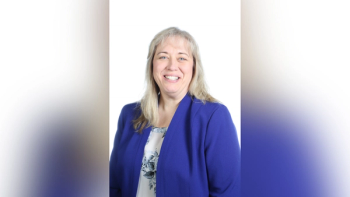
As clinical trials become more complex, success depends on early collaboration, thoughtful protocol design, and practical strategies to manage risk, reduce delays, and support patients.

In this video interview, Luke Wilson, senior director, biotech, pharma services at Thermo Fisher Scientific, explains how clinical operations teams can use remote monitoring and connected technologies to reduce site burden, respond faster to emerging data, and improve both patient safety and trial outcomes.

Clinical Trial Failure Isn’t an Inevitable Risk—It’s Insurable and Opening the Door to New Investors
Clinical trial failure insurance is turning biotech’s most costly risk into a manageable asset, opening new pathways for funding and innovation.

In this video interview, Michael Miller, chief operating officer at Quanterix, discusses how biopharma companies—especially smaller biotechs—can leverage platform trials and biomarker-driven accelerated approvals to remain efficient and competitive amid shifting public-private funding dynamics.

In this video interview, Michael Miller, chief operating officer at Quanterix, outlines key technical and regulatory considerations for clinical operations professionals integrating biomarkers into studies, stressing the importance of clarity on biomarker purpose and working with qualified assay partners.

In this video interview, Michael Miller, chief operating officer at Quanterix, highlights neurology and oncology as two therapeutic areas experiencing major advances from biomarker integration, from blood-based diagnostics in Alzheimer’s to multiomic strategies in cancer research.

In this video interview, Michael Miller, chief operating officer at Quanterix, discusses how the use of biomarkers is expanding beyond exploratory endpoints to inform efficacy and patient selection, driving improved outcomes and greater efficiency in clinical research.
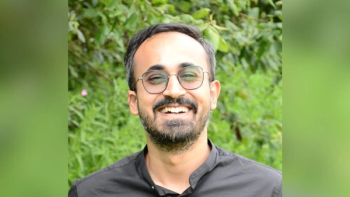
New statistical frameworks such as net treatment benefit offer a multidimensional approach to evaluating efficacy, safety, and patient-centered outcomes in oncology trials.

In this video interview, Kate Gallin Heffernan, life sciences attorney at Epstein Becker Green, advises clinical research organizations to assess their portfolios, diversify funding sources, and strengthen industry-academic partnerships to maintain compliance and continuity amid shifting federal priorities.

Complete Response Letters recently issued by the FDA signal heightened scrutiny of trial design and reinforce the agency’s shifting regulatory expectations for sponsors and CROs.

In this video interview, Kate Gallin Heffernan, life sciences attorney at Epstein Becker Green, advises clinical research teams to closely scrutinize federal fund certifications and document good-faith compliance efforts, even when policies stem from nonbinding executive orders.

Shipra Patel, global therapeutic area section head, endocrinology, global head, pediatrics, Parexel, discusses the importance of long-term patient retention, data accuracy, and AI-driven compliance tools in shaping the future of global obesity clinical trials.

Shipra Patel, global therapeutic area section head, endocrinology, global head, pediatrics, Parexel, explains how therapeutic alignment and cross-functional collaboration enable the company to support GLP-1 trials across multiple disease areas.

Shipra Patel, global therapeutic area section head, endocrinology, global head, pediatrics, Parexel, explains how a focused GLP-1 task force and deep market insights are helping sponsors stand out in an increasingly competitive obesity drug landscape

In this video interview, Heather Horville, solutions consultant at Greenphire, emphasizes the growing need for clinical operations to embed patient-centric services—from consent through final visit—to improve retention and overall trial success.

In this video interview, Heather Horville, solutions consultant at Greenphire, shares how patient advocacy, localized insights, and real-world logistics can help clinical operations teams design studies that are more accessible to rural and minority populations.


